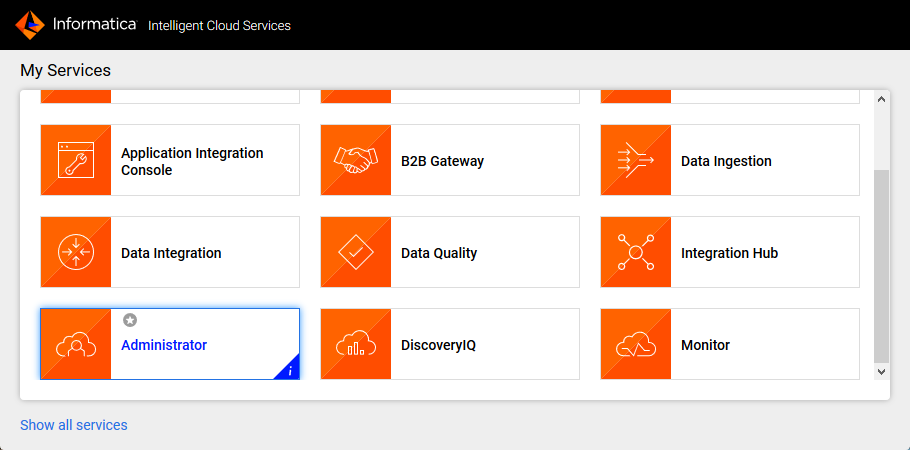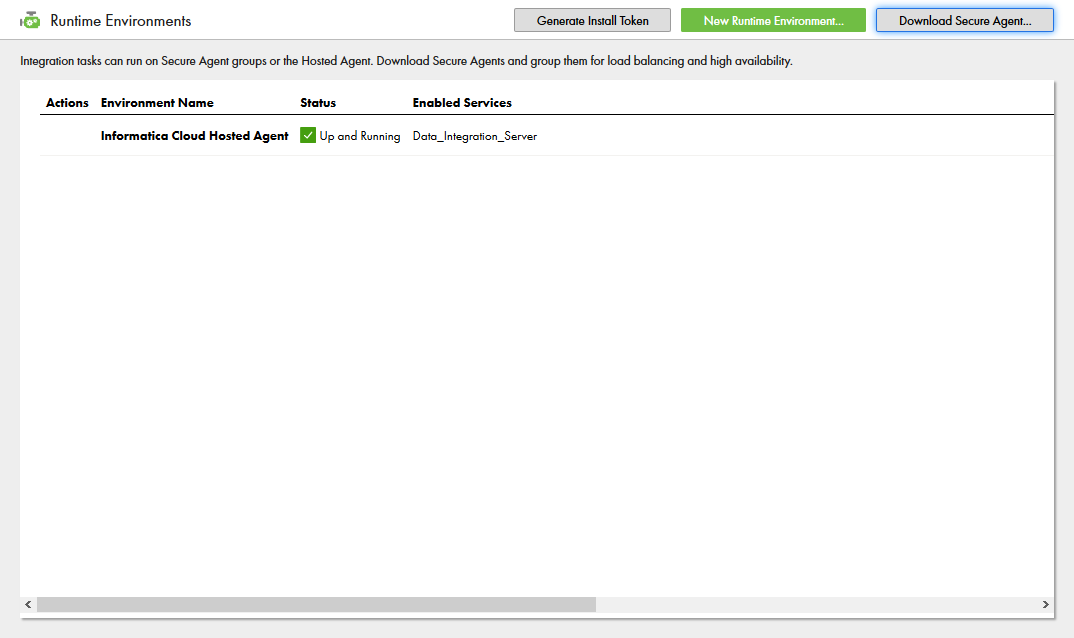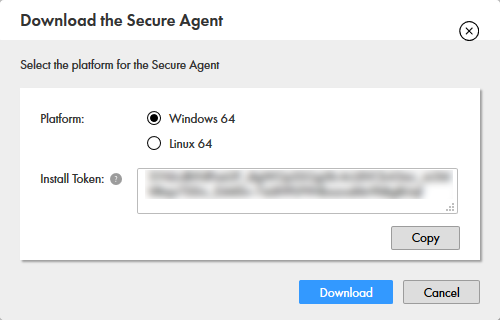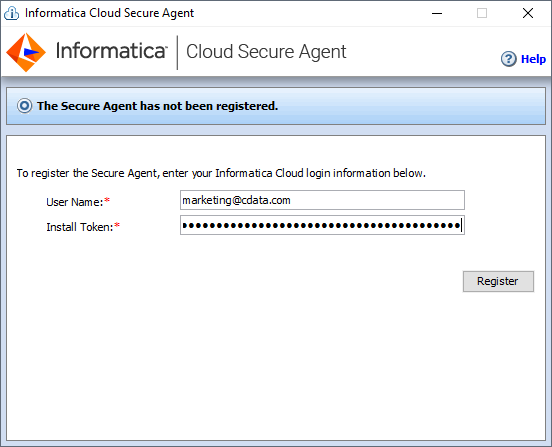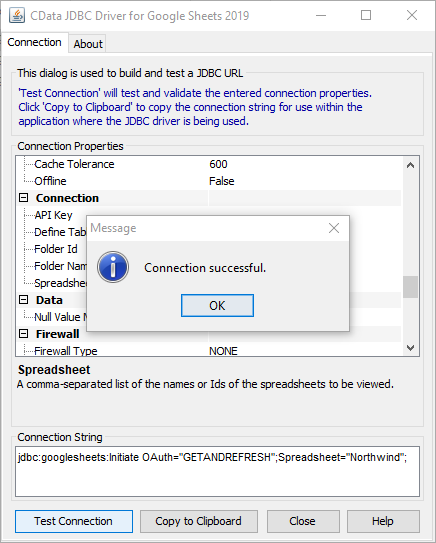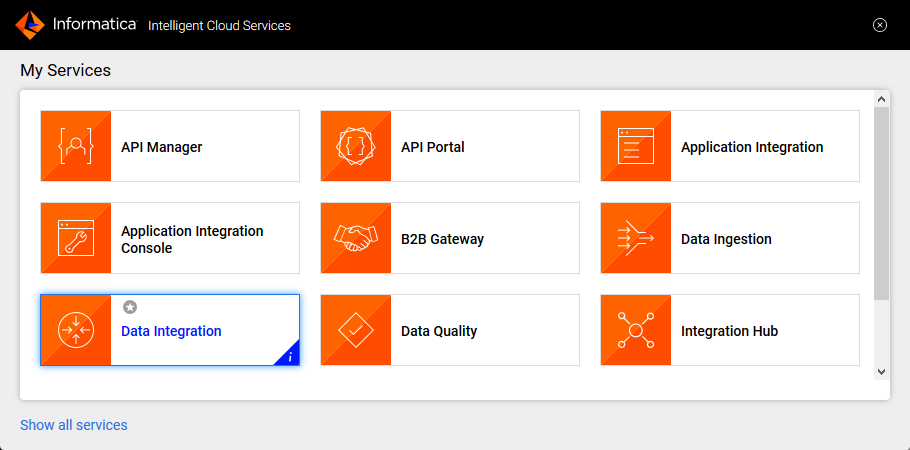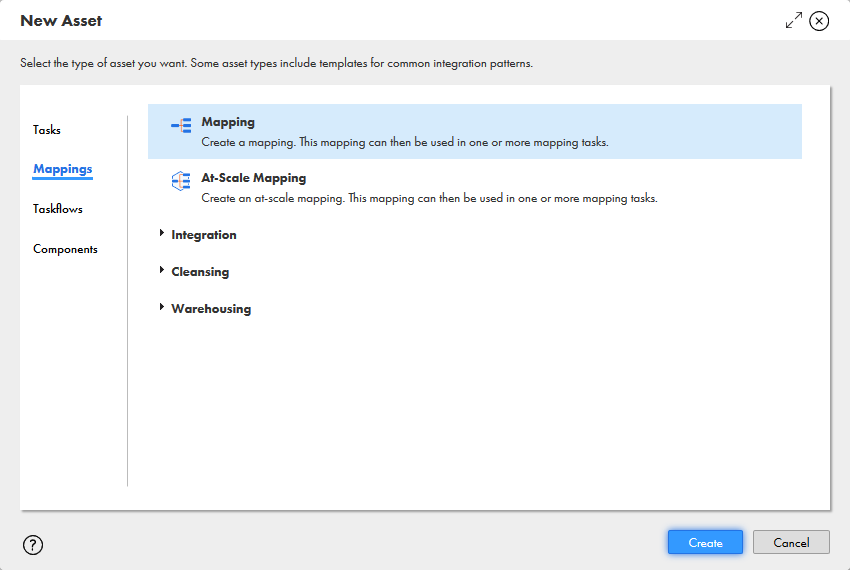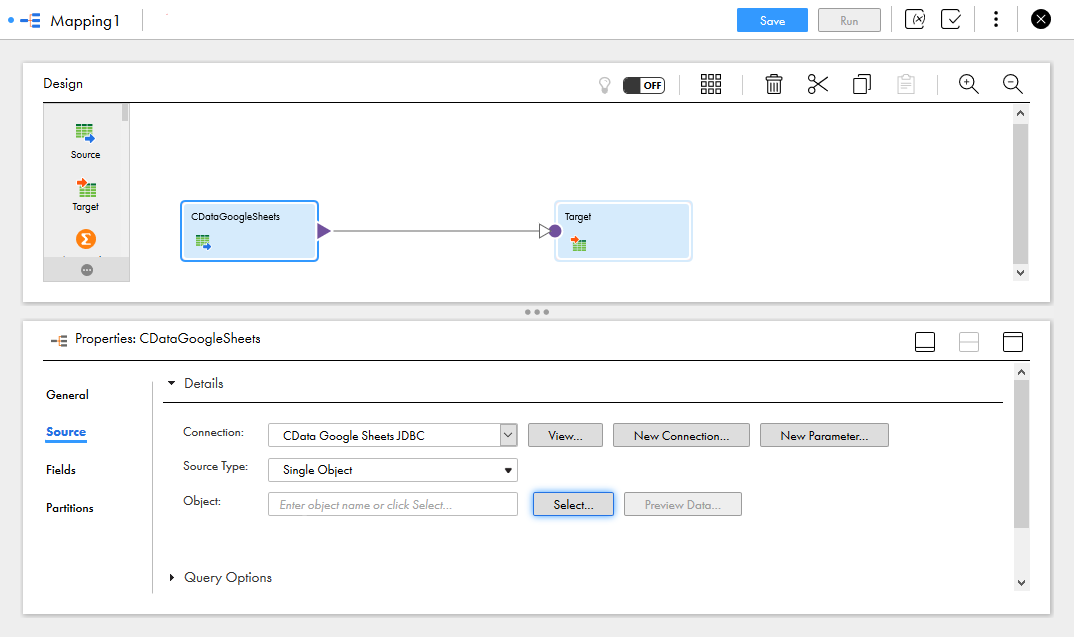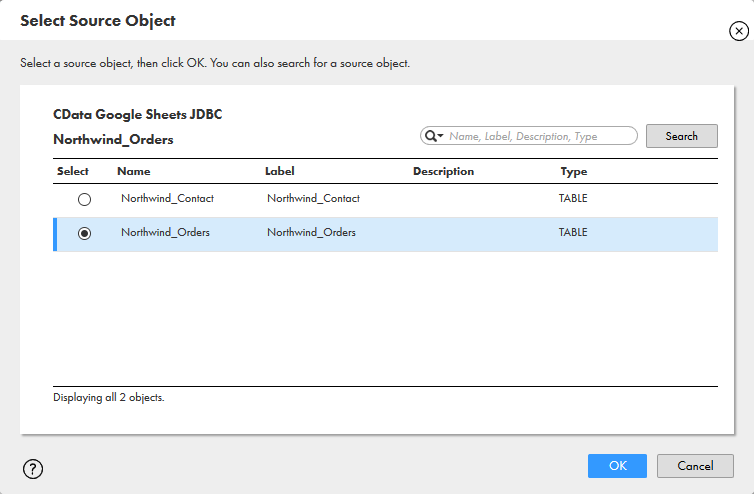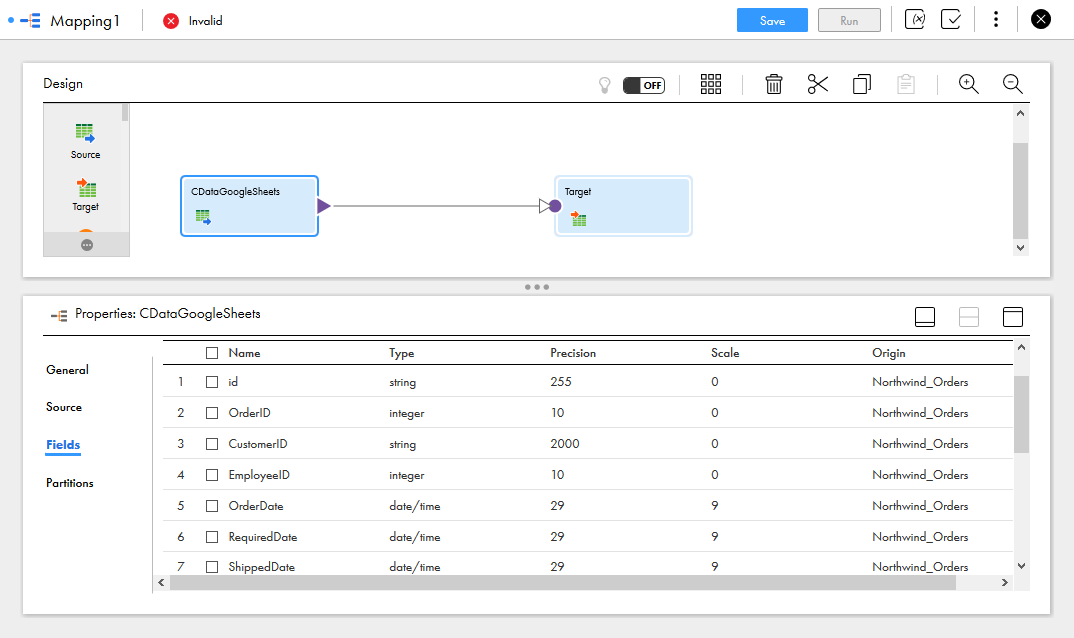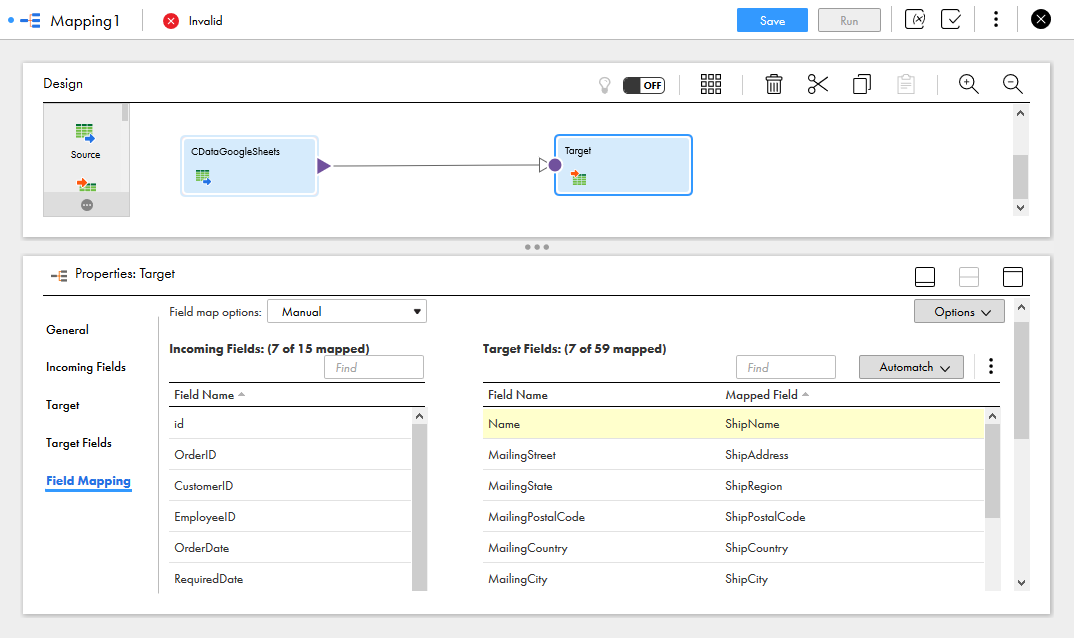Discover how a bimodal integration strategy can address the major data management challenges facing your organization today.
Get the Report →Integrate HCL Domino Data in Your Informatica Cloud Instance
Use CData JDBC drivers with the Informatica Cloud Secure Agent to access live HCL Domino data from Informatica Cloud.
Informatica Cloud allows you to perform extract, transform, and load (ETL) tasks in the cloud. With the Cloud Secure Agent and the CData JDBC Driver for HCL Domino, you get live access to HCL Domino data, directly within Informatica Cloud. In this article, we will walk through downloading and registering the Cloud Secure Agent, connecting to HCL Domino through the JDBC Driver and generating a mapping that can be used in any Informatica Cloud process.
Informatica Cloud Secure Agent
To work with the HCL Domino data through the JDBC Driver, install the Cloud Secure Agent.
- Navigate to the Administrator page in Informatica Cloud
![]()
- Select the Runtime Environments tab
- Click "Download Secure Agent"
![]()
- Make note of the Install Token
![]()
- Run the installer on the client machine and register the Cloud Secure Agent with your username and install token
![]()
NOTE: It may take some time for all of the Cloud Secure Agent services to get up and running.
Connecting to the HCL Domino JDBC Driver
With the Cloud Secure Agent installed and running, you are ready to connect to HCL Domino through the JDBC Driver. Start by clicking the Connections tab and clicking New Connection. Fill in the following properties for the connection:
- Connection Name: Name your connection (i.e.: CData HCL Domino Connection)
- Type: Select "JDBC_IC (Informatica Cloud)"
- Runtime Environment: Select the runtime environment where you installed the Cloud Secure Agent
- JDBC Connection URL: Set this to the JDBC URL for HCL Domino. Your URL will look similar to the following:
jdbc:domino:Server=https://domino.corp.com;Database=names.nsf;Port=3002;SSLClientCertType=PEMKEY_FILE;SSLClientCert=full_path_of_certificate.pem;SSLServerCert=*Prerequisites
The connector requires the Proton component to be installed. Normally, Proton is distributed as part of the AppDev pack. See the HCL documentation for instructions on acquiring and installing Proton or the AppDev pack.
Once the Proton service is installed and running, you will also need to create a user account and download its Internet certificate. This certificate can be used to set the connector certificate connection properties.
Authenticating to Domino
- Server: The name or IP address of the server running Domino with the Proton service.
- Port: The port number that the Proton service is listening on.
- Database: The name of the database file, including the .nsf extension.
- SSLClientCertType: This must match the format of the certificate file. Typically this will be either PEMKEY_FILE for .pem certificates or PFXFILE for .pfx certificates.
- SSLClientCert: The path to the certificate file.
- SSLServerCert: This can be set to (*) if you trust the server. This is usually the case, but if you want to perform SSL validation, you may provide a certificate or thumbprint instead. See the documentation for SSLServerCert for details.
Additional Server Configuration
The connector supports querying Domino views if any are defined. Before views can be queried by the connector they must be registered with the design catalog.
Please refer to the Catalog Administration section of the AppDev pack documentation for details on how to do this.
Built-In Connection String Designer
For assistance in constructing the JDBC URL, use the connection string designer built into the HCL Domino JDBC Driver. Either double-click the .jar file or execute the .jar file from the command-line.
java -jar cdata.jdbc.domino.jarFill in the connection properties and copy the connection string to the clipboard.
![Using the built-in connection string designer to generate a JDBC URL (Google Sheets is shown.)]()
- JDBC Jar Directory: Set this to the lib folder in the installation location for the JDBC Driver (on Windows, typically C:\Program Files\CData[product_name]\)
- Driver Class: Set this to cdata.jdbc.domino.DominoDriver
- Username: Set this to a placeholder value (since HCL Domino does not require a username)
- Password: Set this to a placeholder value (since HCL Domino does not require a password)
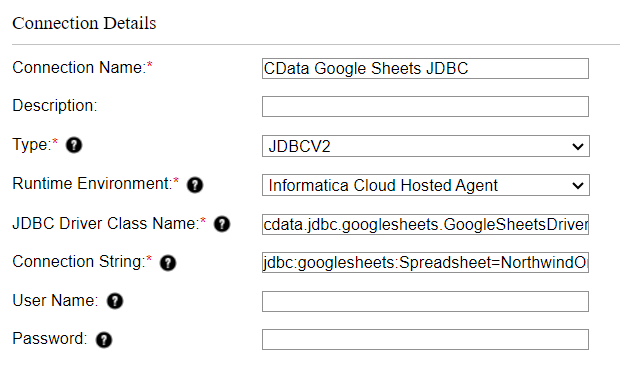
Create a Mapping for HCL Domino Data
With the connection to HCL Domino configured, we can now access HCL Domino data in any Informatica process. The steps below walk through creating a mapping for HCL Domino to another data target.
- Navigate to the Data Integration page
![]()
- Click New.. and select Mapping from the Mappings tab
![]()
- Click the Source Object and in the Source tab, select the Connection and set the Source Type
![Selecting the Source Connection and Source Type]()
- Click "Select" to choose the table to map
![Selecting the Source Object]()
- In the Fields tab, select the fields from the HCL Domino table to map
![Selecting Source Fields to map]()
- Click the Target object and configure the Target source, table and fields. In the Field Mapping tab, map the source fields to the target fields.
![Selecting the Target Field Mappings]()
With the mapping configured, you are ready to start integrating live HCL Domino data with any of the supported connections in Informatica Cloud. Download a free, 30-day trial of the CData JDBC Driver for HCL Domino and start working with your live HCL Domino data in Informatica Cloud today.






